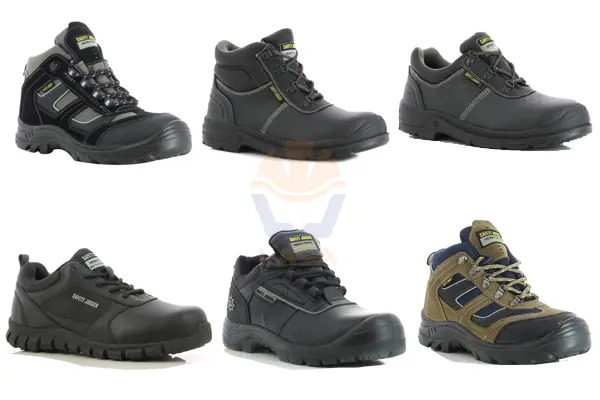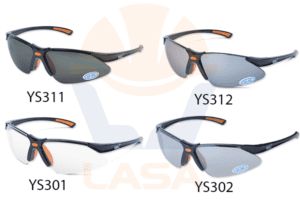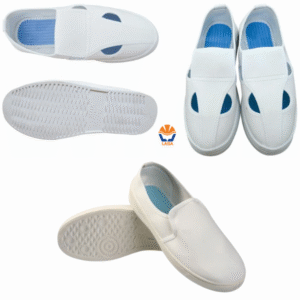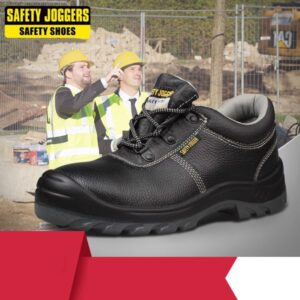In recent years, Vietnam has emerged as a manufacturing powerhouse for a wide array of products, from textiles to electronics—and increasingly, for high-quality industrial safety gear. Among the most sought-after items in this category are safety shoes. If you’re a distributor, retailer, or procurement manager searching for a safety shoes factory in Vietnam, this comprehensive guide will walk you through everything you need to know—from market advantages and production standards to key players and sourcing tips.
1. Why Choose a Safety Shoes Factory in Vietnam?
1.1. Competitive labor and production costs
Vietnam’s relatively lower labor costs compared to countries like China or Thailand make it an attractive destination for manufacturing. This cost-efficiency extends to safety footwear production, enabling businesses to obtain high-quality products at competitive prices—without compromising on safety or durability.
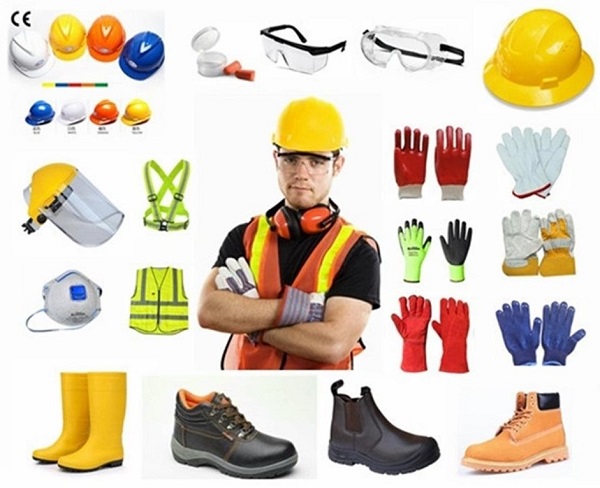
1. 2. Strong manufacturing infrastructure
Many Vietnamese safety shoes factories are located in industrial clusters with access to skilled labor, raw materials, and logistics hubs. Provinces such as Binh Duong, Dong Nai, and Bac Ninh are known for housing specialized factories that focus on industrial footwear manufacturing.
1.3. International standards and certifications
Reputable safety shoes factory in Vietnam follow global safety certifications such as CE, ASTM, and ISO 20345. These certifications ensure that products meet the rigorous standards required for export to demanding markets like Europe, the United States, and Japan.
2. What to Expect from a Vietnamese Safety Shoes Factory
2.1. Custom OEM & ODM services
Most leading safety shoes factory in Vietnam offer full OEM (Original Equipment Manufacturer) and ODM (Original Design Manufacturer) services. Whether you want to launch your own brand or need customized designs for specific working environments (construction, mining, chemical industries), Vietnamese manufacturers are equipped to deliver.
2.2. Diverse material options
Factories typically use materials such as full-grain leather, microfiber, PU (polyurethane) soles, steel or composite toe caps, and Kevlar midsoles. These materials meet the needs of various safety levels—ranging from slip resistance and puncture protection to electrical hazard shielding.

2.3. Scalable production capacity
Vietnamese manufacturers can handle small batch orders for niche brands as well as mass production for global suppliers. Factories generally maintain monthly production capacities of 20,000 to over 100,000 pairs, depending on scale.
3. Key Features of Quality Safety Shoes Factory in Vietnam
Vietnamese safety shoe manufacturers have earned global recognition for combining advanced technology with meticulous craftsmanship. Let’s take a deeper look into the standout features that make safety shoes in Vietnam a preferred choice in many industrial sectors:
3.1. Durability: Built to Withstand the Harshest Environments
One of the most essential qualities of any safety footwear is its ability to withstand daily wear and tear in high-risk environments. Safety shoes Factory in Vietnam are engineered for durability through the use of:
High-abrasion rubber or PU outsoles: These soles resist wear on rough terrains like construction sites, factories, and outdoor environments.
Reinforced toe caps: Typically made from steel, composite materials, or aluminum, toe caps protect against heavy falling objects and repeated impacts.
Stitching and sole bonding technology: Advanced methods such as cementing or direct injection molding ensure the sole doesn’t detach even after long-term use.
Whether you’re walking on uneven surfaces, standing for long hours, or working around heavy machinery, these safety shoes are designed to perform consistently—day after day.
3.2. Comfort: Engineered for Long Working Hours
Wearing safety footwear for 8–12 hours a day demands exceptional comfort. afety shoes Factory in Vietnam pay close attention to ergonomic design, ensuring that protective shoes are not just functional but also wearable over extended shifts. Key comfort features include:
Breathable mesh or moisture-wicking linings: These help regulate foot temperature and reduce sweating, which is crucial in hot, humid environments.
Shock-absorbent midsoles: EVA or PU midsoles reduce stress on joints, making it easier for workers to move across hard surfaces without fatigue.
Cushioned and removable insoles: Ergonomic insoles offer arch support and can be replaced for hygiene or customization.
Lightweight materials: Despite offering solid protection, many models weigh less than traditional boots thanks to the use of composite toe caps and lightweight outsoles.
The result is a balance of safety and wearability—something increasingly demanded in modern industrial settings.
3.3. Safety Compliance: Tested and Certified for Global Standards
Quality safety shoes from Vietnam are manufactured in accordance with international safety regulations. Buyers can expect compliance with key standards such as:
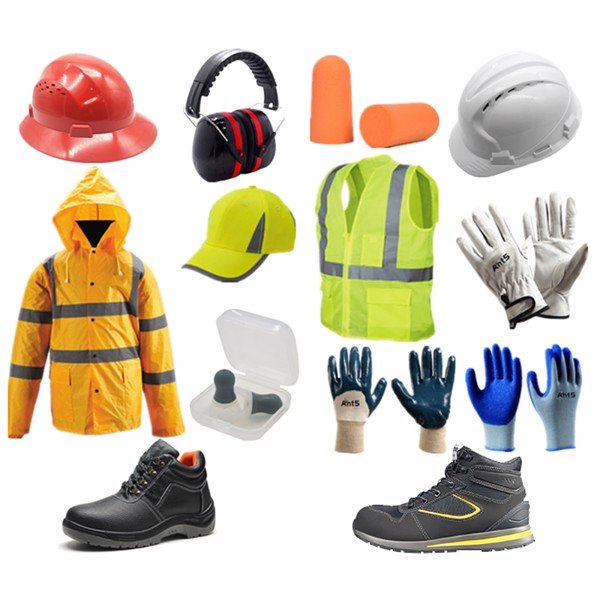
-
ISO 20345 (Europe): Specifies basic and additional requirements for safety footwear.
-
ASTM F2413 (USA): Covers impact and compression resistance, electrical hazard protection, and puncture resistance.
-
CE certification: Ensures the product meets European Union health, safety, and environmental protection requirements.
Each production batch undergoes rigorous quality assurance (QA) and quality control (QC), including:
-
Impact and compression tests
-
Slip resistance evaluation
-
Electrical hazard testing
-
Chemical resistance assessments
By maintaining these strict safety protocols, Vietnamese factories ensure their shoes are not just well-made, but reliable and certifiably protective in high-risk work environments.
3.4. Versatility: Tailored for Every Industry and Role
One of the strongest selling points of Vietnamese safety shoes is their wide range of designs and features tailored to meet specific industry needs. Whether you’re sourcing for construction, oil & gas, manufacturing, or logistics, you’ll find purpose-built footwear options like:
-
Steel toe boots: Traditional choice for heavy industries and construction.
-
Composite toe shoes: Lighter alternative to steel, ideal for airport and electrical work due to non-metallic properties.
-
Anti-static and ESD shoes: Designed for electronics manufacturing or chemical labs to prevent static discharge.
-
Waterproof and slip-resistant shoes: Essential for marine, cleaning services, or food processing industries.
-
Fire-resistant and heat-resistant boots: Used in welding, metalwork, or emergency response jobs.
Furthermore, many factories allow for color customization, branding, and private label production, giving clients full control over the final design and brand presentation.
4. Introducing LASA – A Leading Safety Shoes Factory in Vietnam
4.1. Who is LASA?
Cong ty Co phan LASA was established in 2013 and has quickly grown to become a reputable brand in the field of personal protective equipment (PPE). With multiple branches in Ha Tinh, Ho Chi Minh, and Ha Noi, LASA serves clients across the country and is expanding into global markets.
From protective helmets to reflective clothing and especially safety shoes, LASA provides end-to-end workwear solutions under one trusted name.

4.2. What Makes LASA’s Safety Shoes Stand Out?
4.2.1. Durability That Endures Harsh Work Conditions
LASA’s safety shoes are designed with abrasion-resistant rubber soles, reinforced stitching, and steel or composite toe caps. Whether you’re on a hot construction site, slippery warehouse floor, or metalworking facility, LASA shoes are built to last.
-
Full-grain leather uppers or synthetic microfiber for flexibility and longevity
-
Oil-resistant outsoles for industrial environments
-
Heat-resistant soles for welding or hot surfaces
4.2.2. All-Day Comfort – A Priority, Not a Luxury
Many overlook comfort when it comes to safety shoes factory in Vietnam, but LASA integrates:
-
Breathable linings to prevent moisture buildup
-
Cushioned insoles with arch support
-
Lightweight composite toes to reduce foot fatigue
-
Ergonomic design based on real worker feedback
These comfort features make LASA footwear suitable for long shifts and high-mobility jobs.
4.2.3. Verified Safety Compliance
Every pair of LASA safety shoes goes through strict quality control, including:
-
Impact and compression tests (steel/composite toe caps)
-
Slip resistance evaluations on wet and oily surfaces
-
Electrical hazard resistance (EH-rated models available)
-
Certifications under CE, ISO 20345, and relevant Vietnamese standards
Clients in construction, logistics, mining, mechanical repair, and fire services trust LASA for compliance and consistency.
4.2.4. Product Versatility for Every Industry
LASA provides a full catalog of safety footwear options:
-
Steel toe boots for heavy-duty impact protection
-
Waterproof safety shoes for outdoor or marine jobs
-
Slip-on and lace-up options for various working conditions
-
Anti-static and ESD-safe shoes for electronics manufacturing
-
Women’s safety shoes with adjusted fit and design
Additionally, LASA supports OEM production, private label services, and bulk customization, giving businesses the ability to build their own safety shoe brand.
Absolutely. Vietnam has positioned itself as a leading destination for high-quality, affordable, and internationally compliant safety footwear. A safety shoes factory in Vietnam doesn’t just provide cost advantages—it also offers reliability, scalability, and technical expertise.
Whether you are a startup brand launching your first line of work boots, or a multinational company looking for an alternative supply chain hub, Vietnam has what you need. From robust steel toe boots to anti-slip work sneakers, there’s a trusted factory ready to turn your ideas into well-protected, ready-for-anything products.

